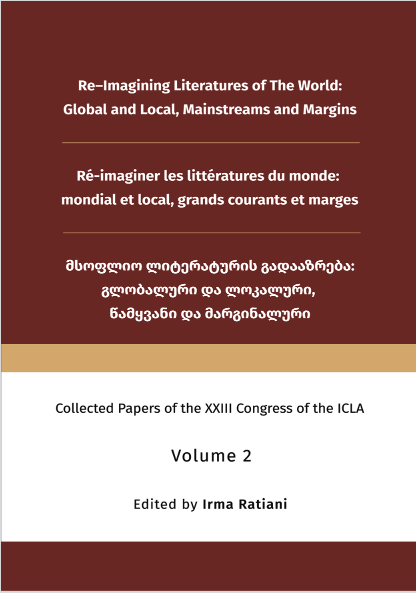Literature as Event: Understanding Bakhtin's Event Theory
Main Article Content
ანოტაცია
Event Has been extensively pored over in literature in recent years. Some noted thinkers of our time, including Heidegger, Deleuze, Badiou, Žižek, Foucault, Eagleton, etc. have made great contributions to the framework of events. This article revisits Russian literary theorist M. M. Bakhtin’s event thoughts in his philosophy and cultural poetics. In his Act Philosophy, Bakhtin proposes ‘Event of Being’ to interpret existence in terms of ontology, epistemology and value ethics. From this starting point, Bakhtin in his cultural poetics conceptualizes literature as an event. Firstly, literature as an event perceives itself as an act or event that is temporally and spatially constituted, rather than a solid object. And as irregular occurrences, events of literature are destined to undergo a process of changes and transformations and predict new emergence. Secondly, featuring in its inherent discourse characteristics, literature as an event is internally intertwined with other social and historical events while at the same time self – sufficiently develops. That is, instead of being perceived as reflective and a passive recorder to its historical society, literature is actually active with its own subjectivity to enter into dynamic dialogue with other events, and in some cases serves as a spiritual power in forging society and history. Therefore, literature as an event places itself between concrete entity and dynamic process, textual discourse and social history context, etc.. This reflects an ‘intero logical thinking', that is, literature exists in the relationship with others as something ‘between’. Clearly, Bakhtin's thoughts on literature as an event would shed light on our understanding towards world literature and literary history writing.
